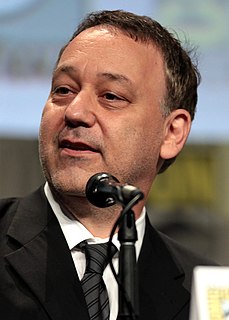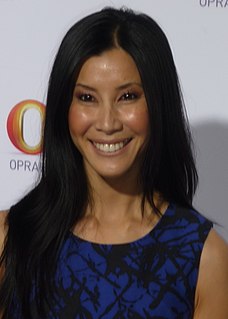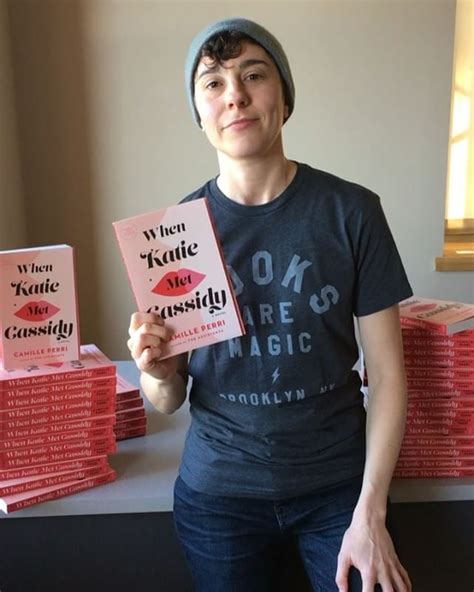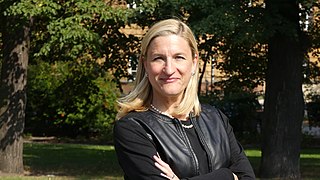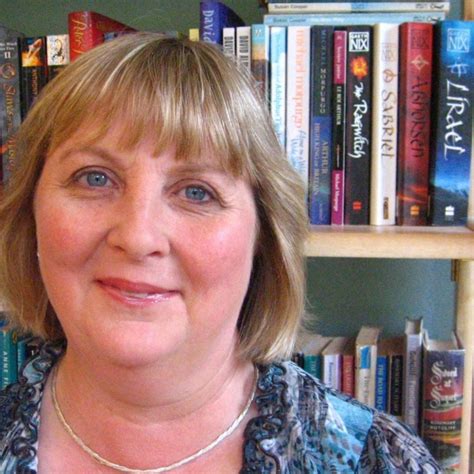A Quote by Sam Raimi
I think she said I should seek help. Something like that, but it was in much cruder terms. And that I had a fascination with things coming out of people's mouths.
Related Quotes
I think that's something people need to convey because you see all these celebrity moms out there, and the perception is they can do it all, but they have sooo much help. And it's kind of an unfair image to project for many women, because it is really hard, and if you have help, you should indicate you have help.
When I was coming to terms with my sexuality, I often felt like I needed to seek out sanctuary outside of my house, and the library was the first place I went. It was a place that I could go and seek out information and look for answers to questions that maybe I was too afraid to ask another person.
You should read something else." Why would he have done that to him?" I don't know," she said. Do you ever feel like Job?" She smiled, a little twinkle in her eyes. Sometimes." But you haven't lost your faith?" No," I knew she hadn't, but I think I was losing mine. Is it because you think you might get better?" No," she said,"its because its the only thing I have left.
Suddenly Saffron had a picture in her mind of Sarah waiting at the bottom of the wall, and she was angry with herself. Something changed in Saffron at that moment. She knew all about feeling left out.... That was why she wanted her angel so badly; proof that she mattered as much as anyone else. "I couldn't really climb the wall," she said. "And if I could, what if I got caught? What would I say?" "You'd think of something." "No. It was a stupid idea. Let's try your way, early in the morning." "Before breakfast?" "Yes. All right Mission Control?" "All right," said Sarah. "All right, Superhero.
People said things they didn't mean all the time. Everybody else in the world seemed able to factor it in. But not Lena. Why did she believe the things people said? Why did she cling to them so literally? Why did she think she knew people when she clearly didn't? Why did she imagine that the world didn't change, when it did? Maybe she didn't change. She believed what people said and she stayed the same." (Lena, 211)
She was obviously useful at the UN because she had a public persona before she ever got there. She was well known. She was a spokeswoman for many important things. When she got there, what she said was paid attention to, undoubtedly much more than would have been if just Joe Blow had been made our representative to the United Nations. In that sense, I think it was useful to have her there.
I consider myself a logical person and, you know, a lot of people try to categorize me in one way or another. You know, there are some of the things that I say that probably would be considered very much non-conservative. But I don't think really conservative or liberal; I think: What makes sense? What's going to help the American people? What's going to give them what they need? Not only in health care but in terms of jobs, in terms of education, in terms of a whole host of issues.
I know what you said! My mother would never have belonged to something like that. Some kind of-some kind of hate group." "It wasn't-," Jace began, but Hodge cut him off. "I doubt," he said slowly, as if the words pained him, "that she had much choice." Clary stared. "What are you talking about? Why wouldn't she have had a choice?" "Because," said Hodge, "she was Valentine's wife.
When my parents realized that what I liked was fashion, they gave me good advice. I remember my father telling me that I should try to do an internship. They never said, "This is a world we don't know; it might be something strange," or "That is not serious," or things like that. They always said, "Try. We'll help you. We'll send drawings to people if you want. We'll write letters for you." What I'm very thankful for is they never made me think that something was impossible. They were really, really supportive. They are still.
Jessica Biel is a really interesting case. She actually called us after the table read and said, "You guys should go meaner." She pitched us, and said, "Look, I know there are a lot of things to make fun of me about. I don't want people to think you're pulling punches. Please, dive in." We asked, "Could we tell a joke about your friend and mentor Stephen Collins?" And she said, "Well maybe not so much in that area. As long as the jokes were about me, I'm game for everything."
